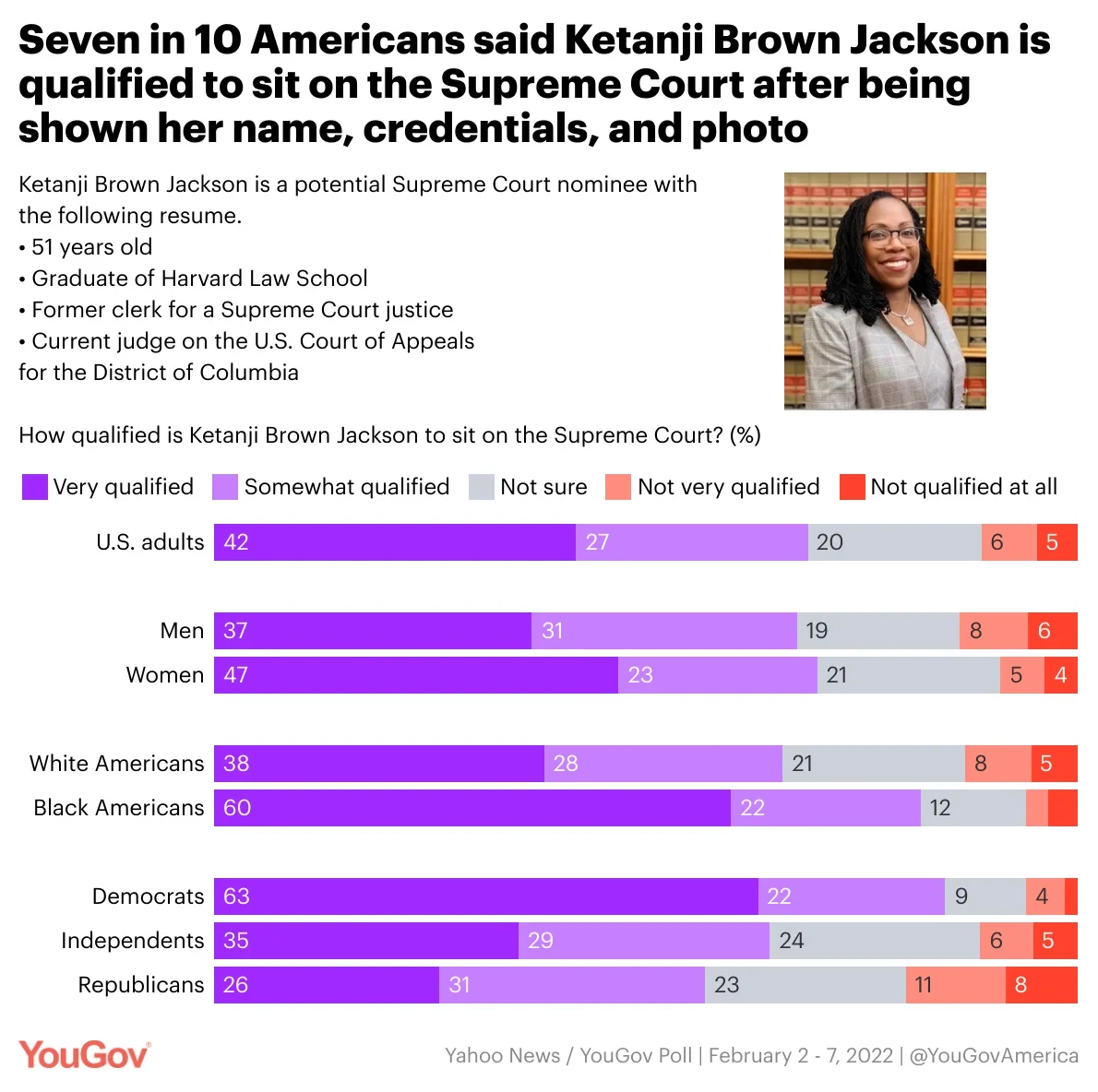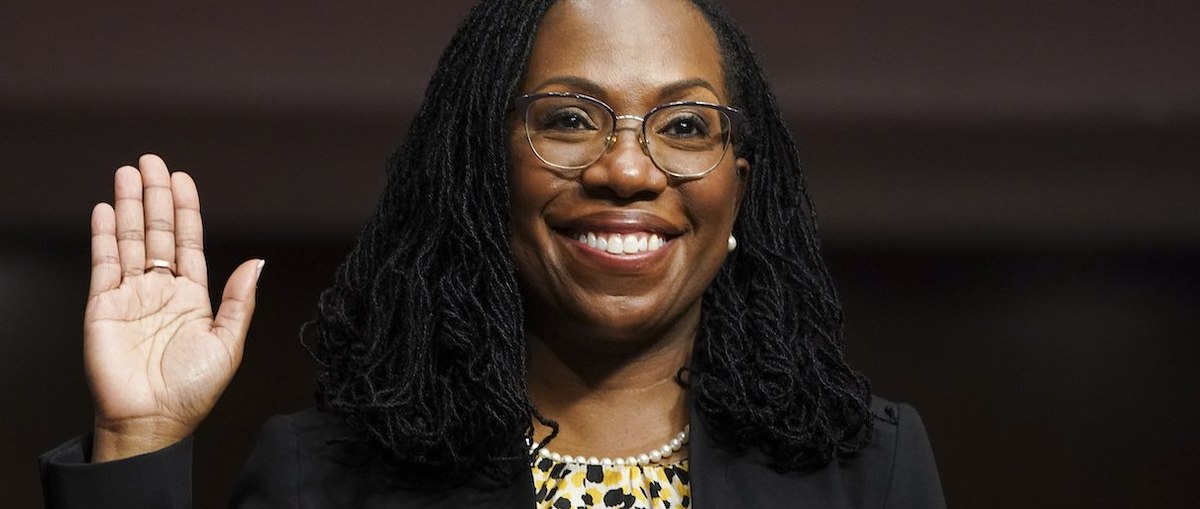On Friday, Biden announced the nomination of Ketanji Brown Jackson to the U.S. Supreme Court. A YouGov poll conducted the same day showed that nearly half of Americans are unsure about whether she is qualified for the court. However, among those with an opinion, the vast majority say she is qualified (39%, to 13% who say she is unqualified). Overall, Democrats are far more likely to say Jackson is qualified than Republicans, who lean toward saying she is not qualified, but are mostly unsure.
How would Americans evaluate Jackson if provided additional information on her credentials? A Yahoo News/YouGov Poll conducted earlier this month, prior to her nomination, showed Jackson’s name, credentials, and photo to U.S. adults and asked them to evaluate her qualifications. Based on this information, far more people (69%) said she was qualified to sit on the Supreme Court compared to our most recent poll, conducted after her nomination (39%); only one in 10 said she was not qualified on the earlier poll.

In terms of Jackson’s ideology, about half of Americans with an opinion say she is about right ideologically (51%), while 37% say she is too liberal and 12% say she is too conservative. The vast majority of Democrats with an opinion view her as about right ideologically, while seven in 10 Republicans with an opinion say she is too liberal.
One in four Americans aren’t sure whether or not Jackson will be confirmed by the Senate. Among those with an opinion, most say she will be confirmed (76%). Democrats are more likely to say that she will be confirmed than Republicans are. While Black Americans are much more likely than white Americans to say Jackson is qualified, they are no more likely to say she'll be confirmed.
Jackson’s nomination marks a historic first for the Court. Jackson is the first Black woman to be nominated, and if confirmed, she would be the first Black woman on the Supreme Court, fulfilling a promise made by Biden during his presidential campaign. In the latest Economist/YouGov Poll, we found that most Americans (55%) supported Biden’s plan to nominate a Black woman, while 27% opposed it.
Jackson would also be the first federal public defender to serve on the Court. A few weeks ago, YouGov asked Americans who would make a better Supreme Court justice: a former defense lawyer or a former prosecutor? While most Americans weren’t sure, a little over half of those with an opinion said they would prefer a public defender to a prosecutor. Democrats were especially likely to prefer a public defender.
- Carl Bialik contributed to this article.
See the toplines and crosstabs from these YouGov Poll:
- Daily Agenda
- Yahoo News/YouGov toplines and crosstabs
- Economist/YouGov toplines and crosstabs
- U.S. News toplines and crosstabs
Daily Agenda Methodology: This Daily Agenda survey was conducted by YouGov using a nationally representative sample of 2,092 U.S. adults interviewed online on February 25, 2022. The samples were weighted to be representative of the U.S. population, based on gender, age, race, education, U.S. census region, and political party.
Yahoo News/YouGov Methodology: The Yahoo! News survey was conducted by YouGov using a nationally representative sample of 1,625 U.S. adults interviewed online between February 3 - 7, 2022, 811 of whom were asked the question about Jackson’s qualification. The samples were weighted according to gender, age, race, and education based on the American Community Survey, conducted by the U.S. Bureau of the Census, as well as 2020 Presidential vote (or non vote), and voter registration status. Respondents were selected from YouGov’s opt-in panel to be representative of all U.S. adults. The margin of error is approximately 3% for the overall sample.
Economist/YouGov Methodology: The Economist survey was conducted by YouGov using a nationally representative sample of 1,500 U.S. adult citizens interviewed online between February 19 - 22, 2022. This sample was weighted according to gender, age, race, and education based on the 2018 American Community Survey, conducted by the U.S. Census Bureau, as well as 2016 and 2020 Presidential votes (or non-votes). Respondents were selected from YouGov’s opt-in panel to be representative of all U.S. citizens. The margin of error is approximately 3% for the overall sample.
U.S. News Methodology: This U.S. News survey was conducted by YouGov using a nationally representative sample of 1,000 U.S. U.S. adult citizens interviewed online between February 11 - 14, 2022. This sample was weighted according to gender, age, race, and education based on the 2018 American Community Survey, conducted by the U.S. Census Bureau, as well as 2016 and 2020 Presidential votes (or non-votes). Respondents were selected from YouGov’s opt-in panel to be representative of all U.S. citizens. The margin of error is approximately 3% for the entire sample.
Image: Getty








